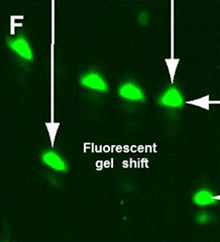Faculty research programs in Biochemistry at the University of Maryland, College Park emphasize fundamental approaches to molecular aspects of biological systems.

Areas of particular strength are biophysical and bioanalytical chemistry, molecular biophysics, and chemical biology. The faculty study fundamental topics in biochemistry that include protein and enzyme structure, function, and folding (Fushman, Herzberg, Kahn, Lee, Liu, Orban, Poulin, Weber), structure and function of membrane proteins (Lee), chaperone-mediated protein folding and translocation (Liu), nucleic acid structure and biochemistry (Dayie, Kahn, Paukstelis, Winkler), RNA processing and modification (Dayie, Winkler), carbohydrate biochemistry and glycobiology (Poulin, Wang), nanobiotechnology (Kahn, Paukstelis), and single-cell proteomics and metabolomics (Nemes).
The program faculty use state-of-the-art experimental approaches that include biomolecular NMR (Dayie, Fushman, Lee, Orban, Weber), X-ray crystallography (Herzberg, Paukstelis), cryo-electron microscopy (Liu), biomolecular small-angle X-ray and neutron scattering (SAXS/SANS) and light scattering (MALS/DLS) (Dayie, Fushman, Lee, Liu), and high-resolution mass spectrometry (Nemes). Faculty also apply computational methods (Fushman, Liu, Matysiak), kinetic and equilibrium analysis of biomolecular interactions (Fushman, Lee, Liu, Poulin), fluorescence methods (Kahn, Lee), and protein engineering (Fushman, Kahn, Lee, Wang).
The faculty apply these methods to biological processes that include protein ubiquitination and ubiquitin-mediated signaling pathways (Fushman), cell-cell communication, cell differentiation and neurodevelopmental biology (Nemes), protein glycosylation and glycoprotein function (Lee, Wang), antibody glycoengineering and antibody-drug/ligand conjugates for targeted therapy (Wang), bacterial biofilm polysaccharide biosynthesis and breakdown (Poulin), virus membrane fusion and protein-protein interactions in virulence (Lee), drug design (Dayie, Herzberg, Poulin, Weber), and SNP’s associated with human diseases (Herzberg).
Most projects are carried out by one or a few graduate students, undergraduates, and postdoctoral researchers, so there is constant contact among faculty and students. Biochemistry groups benefit from connections with many other programs on campus, including Biophysics, Chemical Physics, Biological Sciences (BISI), Computational Biology, Bioinformatics, and Genomics (CBBG), Chemical and Biomolecular Engineering, Bioengineering, and the Brain and Behavior Institute (BBI).
















